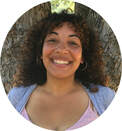What makes this even more challenging is that most people don’t recognize this prejudice and often disguise it by compassion or pity. For example, people may be better able to recognize their racial or cultural bias but are less likely to recognize their prejudice against people with disabilities. The simple fact that as a society we continue to engage in a practice of segregating students and individuals with disabilities into “special” placements, facilities, and homes suggests adherence to this prejudice. This way of thinking needs to change and be added to other civil rights initiatives fighting for equal rights and justice.
Consider how this relates to student school placement for a student with a disability. Imagine there is a child with limited verbal language and difficulty moving due to the impacts of cerebral palsy. Teachers have worked with her for months and have not seen any evidence of what she understands. In fact, the teachers are beginning to wonder if the child has any understanding at all. These teachers can make two assumptions: “what you see is what you get” or “I bet this student knows a lot and doesn’t have an appropriate way of expressing ideas”. The first assumption is limiting and focused only on the students deficits, whereas the second assumptions presumes competence and a belief in the possibilities. The second assumption leaves room for high expectations, creative problem-solving and hopefully to the idea that with a use of a communication device this students voice and ability to self-express will blossom.
But consider what happens when as educators and school communities we rely on the old antiquated paradigm focused on deficiencies. Consider the outcome for students and individuals with disabilities. What if the teachers gave up and chose to believe the first assumption? What harm is caused by this assumption? What is lost for the student and individuals with disabilities?
We all have strengths and weaknesses and more importantly differences. We all have a desire for acceptance and inclusion. It is up to all of us to examine our own core beliefs and spread the word around inclusion of individuals with disabilities, as well as, the “Least Dangerous Assumption.” We can no longer allow the paradigm of prejudice and exclusion to exist for individuals with disabilities as this is what is truly dangerous.


 RSS Feed
RSS Feed